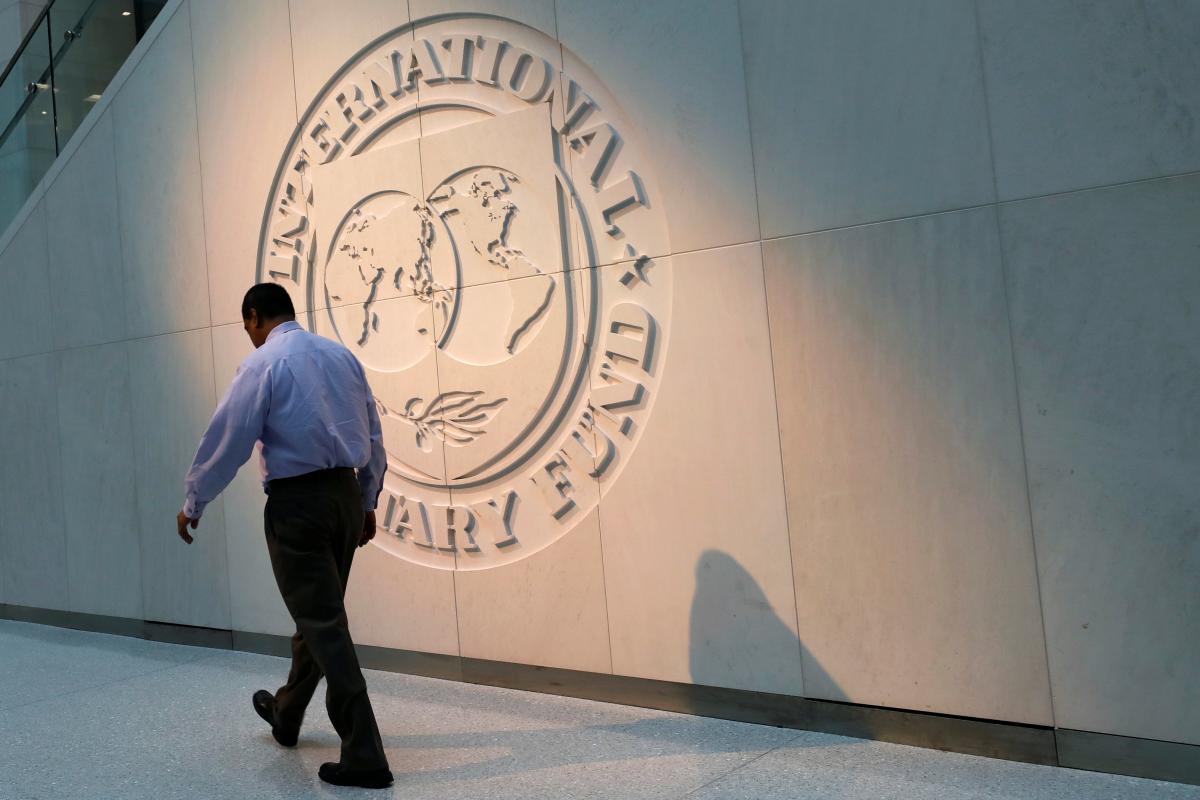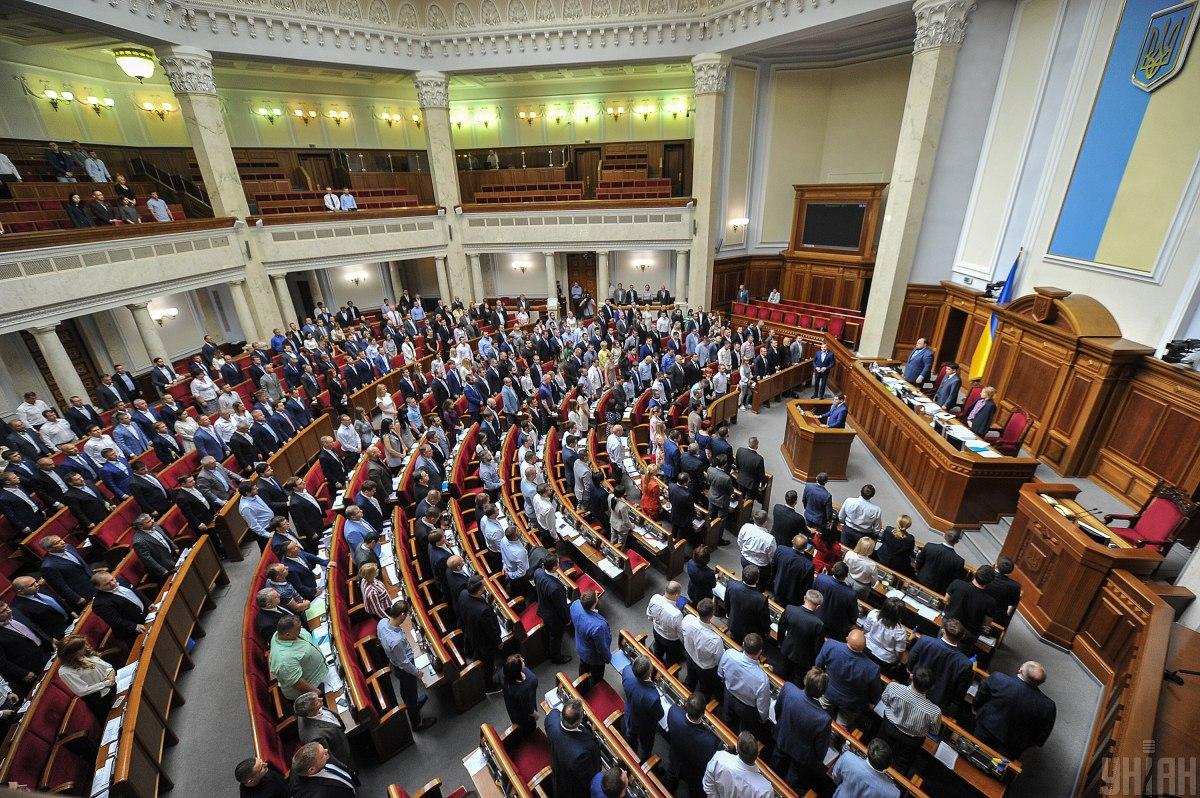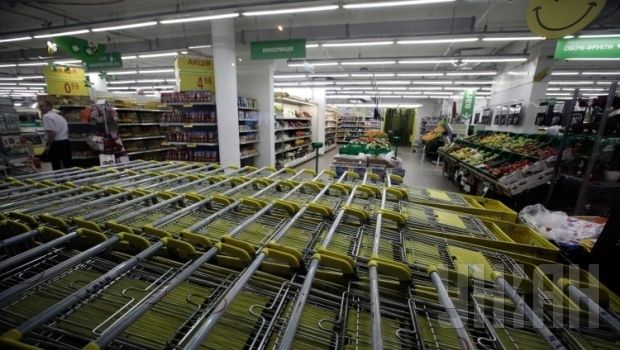
Week's balance: IMF mission started to work, Rada postpones fines for owners of uncleared imported vehicles, while inflation sees decline
The review mission of the International Monetary Fund arrived in n Kyiv, the Verkhovna Rada liquidated the National Financial Services Commission and postponed the introduction of fines for owners of uncleared cars with EU plates, while the State Statistics Service reported on slower inflation in August - these are the main economic developments of the outgoing week.
The outgoing week was marked by the arrival in Kyiv of the another review mission of the International Monetary Fund, which will be working in the country for the next two weeks. According to Prime Minister Oleksiy Honcharuk, the government has already begun negotiations with the IMF officials regarding a new cooperation program, counting on its launch by the end of 2019.
The National Bank estimates the potential volume of the new program at $5-10 billion and forecasts the receipt of the first batch of $2 billion before year-end.
Finance Minister Oksana Markarova said that the new program could be the last one in the framework of cooperation with the Fund, since in the future the country would be able to do without IMF support.
Despite the experience of past years, experts are optimistic about the government’s plans this time to bring the cooperation program with the IMF to a successful completion. According to experts polled by UNIAN, Ukraine will ask the lender for a new extended fund facility (EFF) in the amount of six to twenty billion dollars for a period of two to four years.

It is worth noting that the new cooperation program will be larger than the previous one both in terms of the volume and period and in terms of the conditions for receiving this loan. Also, and will certainly inherit obligations previously unfulfilled by Kyiv. Gerry Rice, the IMF communications chief, said at a traditional briefing in Washington that building an effective anti-corruption infrastructure is a critical element in continuing cooperation.
In addition to experts, the national currency also believes in the successful conclusion of negotiations with a key creditor, strengthening on the news about the resumption of talks with the IMF. Last week, the U.S. dollar in the interbank foreign exchange market twice dropped below UAH 25, updating a three-year low.
Rada, Cabinet perform productively
Just in time for the start of the IMF mission's work, the new Ukrainian parliament passed a number of important economic laws, which was one of the key requirements set by the Fund and other international partners. In the context of the anti-corruption work, people's deputies supported the bill on confiscation of illegal assets and criminal liability for illegal enrichment, which was previously one of the main stumbling blocks in relations between Ukraine and the IMF.
Another revolutionary step was the adoption of the so-called "split law", which provides for the liquidation of the National Financial Services Commission and the transfer of its functions to the National Bank and the National Commission for Securities and Stock Market. Incidentally, the Rada of the previous convocation passed this bill at first reading as far back as July 2016, while the second reading was never held. Thus, the new parliament green-lit the recovery of the financial market.

The law stipulates that the National Bank will become the regulator of insurance, leasing, and financial companies, credit unions, pawnshops and credit history bureaus, while the National Commission for Securities and Stock Market will regulate non-state pension funds and construction financing funds. The reallocation of functions in the financial services market, the law says, shall be completed before July 1, 2020.
NBU Governor Yakiv Smolii says the "split law" will expand capabilities of the National Bank to implement its mandate to ensure financial stability and help the country get a financial system that meets international standards.
The Cabinet of Ministers this week also delivered several important economic decisions. A number of personnel reshuffles were made in the ministries, while the Naftogaz supervisory board saw new Cabinet representatives. In particular, Volodymyr Demchyshyn, Serhiy Popik, and Kostyantyn Maryevych were replaced by head of the Office of National Investment Council under President, Yulia Kovaliv, and Deputy Minister of Energy and Coal Industry Natalia Boyko.
According to Prime Minister Oleksiy Honcharuk, the newly appointed officials have a deep understand of specifics in the gas sector and Naftogaz work. At the same time, one more spot in the supervisory board of the energy giant remains vacant.
Last warning for owners of uncleared cars

Summing up the country's economic life in the past week, one cannot but mention the issue of motor vehicles with foreign registration plates. One of the most resonating topics was another delay (for three months) by the Rada in the introduction of fines for owners of uncleared cars imported from the EU. This is the third time the fines are being postponed.
President Volodymyr Zelensky spoke up in support of such delay, noting that during this period, deputies should develop a new bill designed to establish clear and transparent rules for customs clearance of such vehicles.
It should be noted that the grace period for customs clearance of cars with foreign registration plates expired on Aug 22. Since then, fines were to be applied to drivers who had imported cars into Ukraine and violated the transit period, which is free of charge.
According to the Ministry of Infrastructure and the Ministry of Internal Affairs, 600,000-800,000 such cars remain uncleared.
Daniil Hetmantsev, head of Rada Committee on Finance, Tax and Customs Policy, noted that this was the last concession to owners of the said type of vehicles.
Slower inflation

An important news of the past week was the report of the State Statistics Service on inflation slowdown in August in annual terms to 8.8% from 9.1% in the previous month. According to the agency, in the previous month, prices fell by 0.3% against July after a 0.6% decrease in July compared with June. Since year-start, against December 2018, consumer prices rose by 2.7%.
According to the State Statistics Service, the largest price increase in August in annual terms was again recorded for vegetables, which rose in price by 32.9 percent, railway passenger transport - by 25.8 percent, bread - by 20.4 percent, sewage services - by 19, 7 percent, hot water and heating - by 19.2 percent. Whereas eggs, natural gas, shoes, fuel and oil, in contrast, became cheaper.
The National Bank noted that the data approach the trajectory of the official forecast, but still exceed it due to deviation in the previous month.
The outgoing week was remembered by several more significant events for the country's economy. Among them is the placement of securities by Ukrzaliznytsia worth nearly $100 million at the lowest rate in eight years.
According to the relevant agreement signed between Ukrzaliznytsia and the European Bank for Reconstruction and Development, 70% percent of the funds raised will be used to modernize railway infrastructure of TEN-T international transport corridors.
Undoubtedly, this is a positive signal for both market players and investors who have taken a wait and see attitude toward Ukraine. Following the increase in Ukraine's credit rating, Fitch Ratings raised that of Ukrzaliznytsia to positive, emphasizing that the company's financial and economic performance gives investors confidence in its stability.
In addition, Naftogaz announced the injection of a sufficient amount of gas into underground storage facilities for the normal passage of winter, which is a positive signal for Ukrainians in anticipation of winter chills.
The Ukrainian agri-industrial complex, which is one of the leading sectors of the national economy, also pleased Ukrainians with some news this week. Agrarians started sowing 2020 winter crops, completing 364,000 hectares, or five percent of the forecast. In total, farmers have already threshed more than 39 million tonnes of cereals and begun harvesting maize. According to the ministry's forecast, in 2019, the crop may increase by 1.5% year-on-year, amounting to more than 71 million tonnes.
Next week promises to be no less eventful. The government could approve the draft state budget for 2020, while parliament – start its consideration. In addition, the IMF mission will continue its work in Ukraine, while the State Statistics Service will report on economic growth for the second quarter.
Olelsandra Danko

